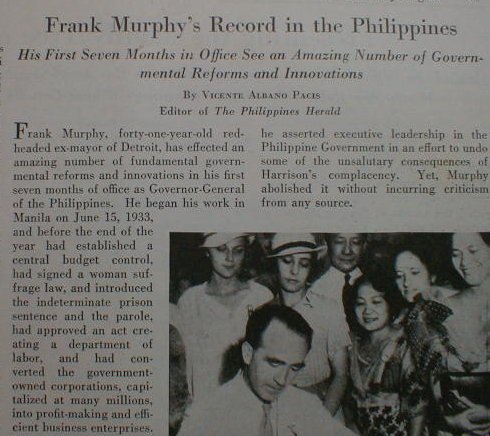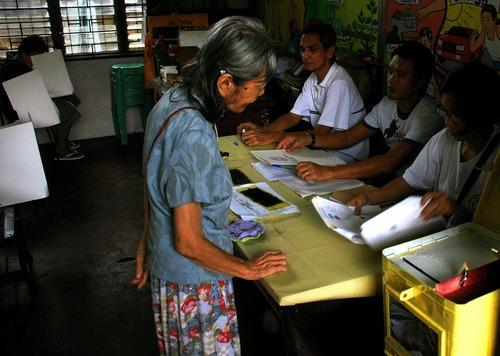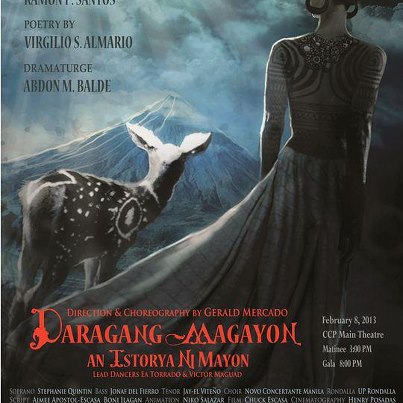Of all the women in Kabikolan, none was more winsome than Tiong Makusog’s daughter, Daragang Magayon, whose name literally means woman beauteous. That was why in the whole region, she was the kabinibinihan (modest) of them all. Among the native who fell madly in love with her, was the wealthy but selfish Paratuga. Thrice did this suitor thrust his spear near the stairs of Tiong Makusog’s house as a sign of his love of Daragang Magayon, and thrice did he present valuable gift of pearls, diamonds and gold, only to be answered with firm words of refusal. “He is not the man for me, father,” the beautiful woman would say whenever she was enjoined by Tiong Makusog in behalf of the native lover. Since the old man was open-minded, he could do no other but follow her wish.One midnight, while silence pervaded the place, Daragang Magayon unexpectedly confessed to her father of her love affair with a certain man who lives beyond the border of Kabikolan. “Tatay”, she began tremulously,” it will mean eternal disgrace to our family if I am known to be in love with a stranger who lives on the other side of Kabikolan (the boundary river that separates Kabikolan from Katagalogan, the region inhabited by the tagalogs). To me he is the handsomest of all men I have ever seen. I owe my life to him, because he was the brave man who saved me from the mad currents of Kabikolan, when one morning while I was bathing in the river, my feet unfortunately slipped on the rock I stood upon”.
Tiong Makusog became grief-stricken after learning that his only daughter had already chosen her life-partner without his knowledge. Nevertheless, he controlled himself, and queried, although scarcely intelligible, who her strange sweetheart was.
“That is it”, Daragang Magayon seemed to have trailed her father thoughts, “I am sure you don’t know his name because when you arrived, I was already saved from drowning and he had immediately told me, “Namomotan Ta Ka”, (I love you) he told me one sunset when we met again at the bank of the river. “Namomotan ta ka man,” (I love you too) I replied, whereupon, I felt his lips tenderly pressing on mine. What shall we do father? I don’t love Paratuga. I prefer a thousand deaths than wed him!” She ended firmly.
“I will help you to find the best way out, my daughter,” Tiong Makusog, albeit heavy was his heart, assured her.
Unfortunately one morning, while Tiong Makusog was hunting in a nearby forest, several strong henchmen of Paratuga suddenly seized him unawares. He was taken to the home of this treacherous suitor where he was demanded as ransom, the hand of his daughter, otherwise death from the wounds of hundred arrows would be his punishment.
That same day, a few hours after Tiong Makusog had been taken as captive, Linog, Paratuga’s chief messenger arrived at Daranga Magayon’s house and delivered to her a letter written on a piece of white bamboo
It contained a demand for her hand in marriage to Paratuga, or her refusal would mean immediate death of her father. Realizing the futility of a further refusal, Daragang Magayon forgot her gentle Panganoron, the man who had saved her from drowning. She at once rushed down the stairs and proceeded to Paratuga’s village to accept his terms to be his wife, to save her father.
The date of the wedding of Daragang Magayon to the wealthy Paratuga was immediately announced. Pearls, diamonds, gold and other precious stones were given lavishly to Tiong Makusog as gifts to the would-be bride. Messengers with swift heels were sent to al villages in Kabikolan purposely to broadcast the news and to invite every one to attend the nuptials.
As if aided by the wind, the news of Daragang Magayon’s proposed marriage speedily spread far and wide. It finally reached Panganoron’s ears whom upon learning the strange happening, was moved with surprise. For did she not assure him of her love, whatever consequence might befall on her? Indeed, the real lover could not believe what he heard. To him only force could make Daragang Magayon accept the marriage to that hated man. So with a bold determination to save his sweetheart from an impending danger, the daring warrior, with his trusted guide, Amihan, gathered all his men in Katagalogan to invade Kabikolan.
Panganoron and his followers arrived in Kabikolan on the day of Magayon’s marriage with Paratuga. The invaders were determined to slay the unwanted suitor and his people. Before the altar sat Tiong Makusog, with Daragang Magayon and Paratugaon each of his side. In front of them was the high priest who was busily mumbling words of incantation prior to the formal proclamation of the two parties as husband and wife. To the thousand pairs of eyes that witnessed the splendid ceremony, Daragang Magayon appeared immensely beautiful. Never before had they seen such a winsome woman. However, they could see that grief had lodged on her lovely face.
In the midst of the wedding ceremony, nevertheless, a sharp cry of “Tulisanes are coming!” from a villager outside suddenly put the scene into a medley of shrieking voices. Men, women and children speed away for safety. Only Daragang Magayon, Paratuga and his warriors remained to await the invaders headed by Panganoron. In a moment the battle was on. The sharp metallic clash of blade filled the air, and mounds of dying warriors gave a horrible sound in the fight. Paratuga was the first to gall, at the hands of the bold Panganoron. Seeing her returned lover, Daragang Magayon at once rushed to him, but sadly enough, a stray arrow fatally hit her. In his efforts to lift the weakening body of his sweetheart, Panganoron was unnoticeably attacked from behind. He reeled to the ground, bleeding and breathless. His men, sensing that their leader was dead and realizing that they were outnumbered, took to their heels and left him lifeless to their enemy.
The next day, all the natives of Kabikolan were sad. Daragang Magayon was dead. Tiong Makusog buried her beside the sea. In her grave, he laid all that she had possessed, including the priceless gifts of Paratuga. A week, however, after the burial, all the inhabitants of that place were surprised to find the grave mound of Daragang Magayon steadily rising into a hill. They were amazed, too, why sometimes a flock of white clouds floating over the hill would suddenly turn black and burst into a cloud and heavy shower strangely enough, pouring particularly on the crest of the hill. At night the people would be awakened by strong earthquakes that seemed to emanate from the grave of Daragang Magayon, followed by a thundering noise of rolling stones, along its steeply slope. This horrible occurrence frightened the natives so that in a short period, the place had become deserted.
During the countless years that followed that incident, the burial-hill of Darangang Magayon had kept on growing and growing until it was transformed into a high mountain, with its top almost piercing the clouds.
Nowadays the Albayanos, believed that the spirit of Paratuga is the cause of the occasional eruption of the mountain that was formerly the grave-mound of Daragang Magayon. The legend tells us that in order to avenge his failure to wed the beautiful daughter of Tiong Makusog, the spirit of Paratuga, with the help of Linog’s, is trying every once in a while to exhume her grave to emit all the pearls, diamonds and gold he had given to her as gifts. Instead of the gifts, however, large masses of stones with heavy layers of ashes, are thrown out, as when a volcano erupts.
The spirit of Panganoron, on the other hand, so the legend says, is wandering in the form of clouds above the peak of the mountain. These clouds usually visit the burial-place of Daragang Magayon and never fail to kiss it. Apparently the spirit of Panganoron seems to be grieving over the death of his sweetheart, for whenever clouds gather at the top, they usually disperse into volleys of raindrops, thus keeping the plant vegetating on the mountain slopes fresh all year round. The people of Albay contend that these frequent visits of the spirit of Panganoron to the mountain of Daragang Magayon, in the form of clouds and rain may account for its having a heavy rainfall every year.
Today the imposing mountain of Daragang Magayon still stands in Albay, perpetually clad with the green foliage of plants. Indeed, what a striking parallelism to find this mountain, like the winsome lady of former Kabikolan, always a radiant symbol of hope, to honor and remember the memory of Daragang Magayon, the mountain that marks her resting place is now called Mayon (short for Magayon) and the village by its slopes is at present a thriving town as Daraga (derived from Daragang) which is still noted for its pretty women.









